It’s the time of year when we enjoy looking back on our blog articles that captured the most attention in the data management community.
This year’s review reveals a diverse mix of sought-after topics, including data remediation, agile data governance, data lineage, remote work and more.
Ready for our best-of-the-blog redux? Here we go …
Top 5 Posts Published in 2020
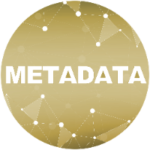 1. Get Started With Collibra Metadata Integration– Metadata management sits at the core of data governance technology solutions, such as Collibra’s data intelligence platform. Many of our clients reach out to us for help with navigating Collibra’s integration options and identifying the best fit for getting their metadata into the platform.
1. Get Started With Collibra Metadata Integration– Metadata management sits at the core of data governance technology solutions, such as Collibra’s data intelligence platform. Many of our clients reach out to us for help with navigating Collibra’s integration options and identifying the best fit for getting their metadata into the platform.
If you’re starting your metadata journey and are considering Collibra, this article will be a helpful primer.
 2. Remote Work Readiness: What’s Your Status?– Kelle O’Neal wrote this article in March as Coronavirus-related concerns were prompting organizations to gauge the benefits and risks of working remotely for the foreseeable future.
2. Remote Work Readiness: What’s Your Status?– Kelle O’Neal wrote this article in March as Coronavirus-related concerns were prompting organizations to gauge the benefits and risks of working remotely for the foreseeable future.
We’ve been making remote work work since 2007 — and we couldn’t do it without a few essential tools and a collective willingness to experiment, collaborate and communicate, as Kelle shares in this article.
 3. Making the Case for Data Lineage – Embarking on a data lineage initiative is a worthwhile effort, no matter its size or scope. That’s because understanding where data comes from can improve reporting, make data more trusted and improve business decision-making.
3. Making the Case for Data Lineage – Embarking on a data lineage initiative is a worthwhile effort, no matter its size or scope. That’s because understanding where data comes from can improve reporting, make data more trusted and improve business decision-making.
In this article, we address the importance of identifying data lineage use cases and how to assess how much work’s required to support your business’ needs — without having to track data lineage for every data element.
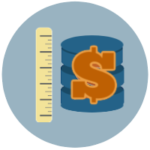 4. How to Measure Data as an Enterprise Asset – Data as an asset is a concept that’s gaining attention as organizations grow their data stores and seek to put a value on all of that information.
4. How to Measure Data as an Enterprise Asset – Data as an asset is a concept that’s gaining attention as organizations grow their data stores and seek to put a value on all of that information.
A first step this article suggests is to define the data your business can’t function without, capturing why it must be included in the valuation. The benefits to doing so are many, including that knowing how to articulate data’s value helps you better “defend” the valuation. (If you’re interested in exploring more about this topic, Kelle’s Quantify the Value and Meaning of Data article is the precursor to this one.)
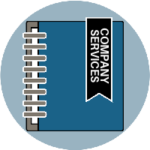 5. Is Data Governance a Project, Team or Program? It’s a Service – At the end of Kelle’s Enterprise Data Governance Online session last January, audience members asked several questions, including this one: What’s the difference between data governance and data governance as a service?
5. Is Data Governance a Project, Team or Program? It’s a Service – At the end of Kelle’s Enterprise Data Governance Online session last January, audience members asked several questions, including this one: What’s the difference between data governance and data governance as a service?
In this article, we shared Kelle’s response to the question and additional food for thought on the topic.
Top 5 Posts Published Before 2020
Our annual review of hot topics regularly picks up older blog posts that people are drawn to. Here are the top five articles that predate 2020.
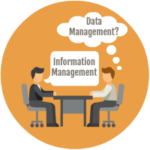 1. What’s the Difference Between Information Management and Data Management? – Over the years, clients have asked us about industry concepts and terms because they want to be sure they understand leading strategies and the associated lingo.
1. What’s the Difference Between Information Management and Data Management? – Over the years, clients have asked us about industry concepts and terms because they want to be sure they understand leading strategies and the associated lingo.
While the terms “information management” and “data management” are easy to confuse, there are some differences. Read the article to discover the nuances and applications for each.
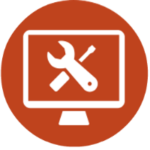 2. What is Data Remediation – Which individual or team in your organization focuses on data remediation? Anyone? Anyone?
2. What is Data Remediation – Which individual or team in your organization focuses on data remediation? Anyone? Anyone?
Our senior consultant, Angie Pribor, shares her thoughts on the topic of data remediation in this popular article.
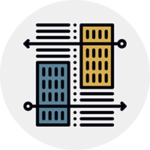 3. Defining Data Acquisition and Why it Matters – As data drives more and more of the modern economy, data governance and data management are racing to keep up with an ever-expanding range of requirements, constraints and opportunities.
3. Defining Data Acquisition and Why it Matters – As data drives more and more of the modern economy, data governance and data management are racing to keep up with an ever-expanding range of requirements, constraints and opportunities.
Read this article for an industry pro’s take on how to define data acquisition and why it’s gaining importance.
 4. A Modern Operating Model for Agile Data Governance – Data governance keeps reinventing itself, thanks to it being decades-old and matured. Governance models have evolved, too. And while traditional models are still in use today and still effective, there’s a growing need for a new model to meet today’s demands.
4. A Modern Operating Model for Agile Data Governance – Data governance keeps reinventing itself, thanks to it being decades-old and matured. Governance models have evolved, too. And while traditional models are still in use today and still effective, there’s a growing need for a new model to meet today’s demands.
In this article, Kelle shares her thoughts on how a more flexible, engaging and less dictatorial model promotes agility and speed-of-delivery, supports greater attention on data’s value and meets the demands of more complex regulatory environments.
 5. Metrics for Data Architecture Effectiveness – Does your data architecture practice work? Has it had an impact on your organization? If you can’t articulate its value, you may be hard-pressed to answer questions about the data architecture’s effectiveness.
5. Metrics for Data Architecture Effectiveness – Does your data architecture practice work? Has it had an impact on your organization? If you can’t articulate its value, you may be hard-pressed to answer questions about the data architecture’s effectiveness.
Here, Kelle outlines a broad scope of practice areas and shares her thoughts on critical measures, including progress and impact metrics, and why implementing some form of measurement across an architecture practice is critical.
Want to Keep in Touch in 2021?
We hope you enjoyed our recap of the most popular data management topics on our blog. If you’d like to stay in the loop and get updates each month from First San Francisco Partners, here’s where you can sign up.

